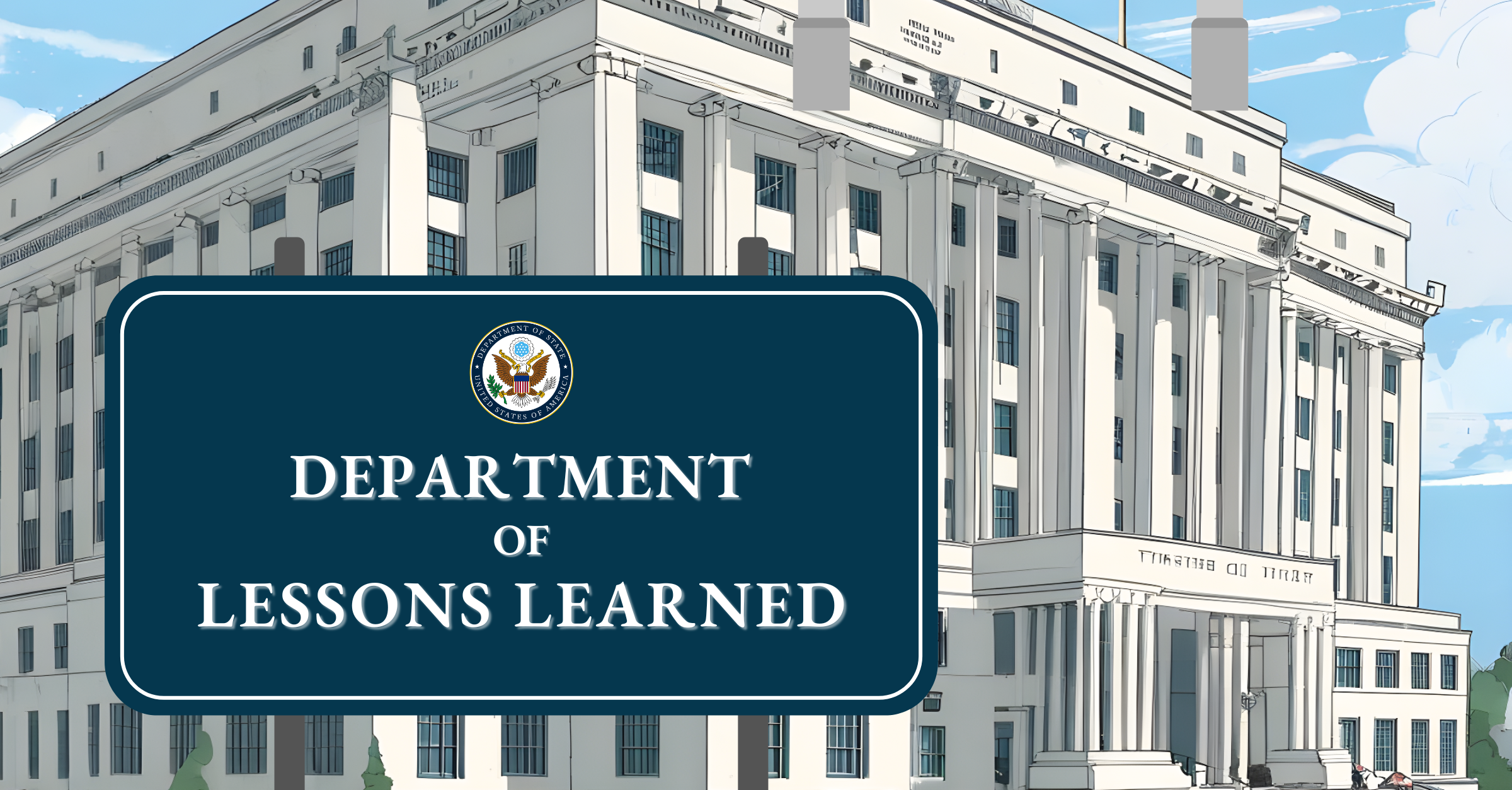Making “Lessons Learned” Stick
By: Dan Spokojny | December xx, 2023
I spent a day last week at the United States Institute of Peace conference, “Peacemaking in a Turbulent World: Lessons Learned in Managing Internal and International Conflicts.” The conference, the first of a set of meetings, included many of the leading academics in the field. The goal is to produce lessons learned for policymakers.
How many lives could be saved, how many wars could be prevented, if we could inject all of this knowledge into the bloodstream of policymaking? Sitting amongst so many extraordinary scholars gave me an opportunity to reflect on what I’ve learned about the ways external expertise can positively impact the policy process.
Here are five observations based upon my study of lessons learned programs.
First, access to policymakers is necessary but insufficient.
Lessons are only impactful when policymakers are willing to change their mind when presented with contrary evidence. Simply exposing policymakers to new ideas may merely encourage policymakers to cherry-pick lessons that comply with preexisting assumptions and ignore inconvenient analyses. This can give policymaking the sheen of “evidence-based decision-making” without reaping any of its benefits.
Second, apply lessons to relevant decision-making processes.
The most effective lessons learned efforts are harmonized with the decision-making processes that shape policy. Producing lessons without understanding where they will fit in the policy process is like hunting for buried treasure without a map. This targeting forces the authors of the program to be crystal clear about the organizations, actors, and policy levers to which their lesson will be applied. People who study political violence are taught to bring a great deal of empathy to the actors involved in the conflict. That same attention and empathy must also be directed to understanding the organizations and actors that develop foreign policy here at home.
Third, prioritize the most impactful lessons.
Policymakers are inundated with torrents of information from internal and external sources every day. Most of what they receive is never read. Clarity about the decision-making process ensures that one’s lessons learned program is clear about the type of knowledge that will be most impactful for policymakers. Expansive literature reviews are important for academics, but useless for policymakers. Likewise, deciding which issues deserve investment in a lessons learned program is important. A useful heuristic for prioritization is the ITN framework: how important is the issue? how tractable to change is it?, and how neglected is it?
Fourth, translate lessons into actionable recommendations.
While the empirical evidence that informs any lessons learned project is backward-looking, policymakers benefit most from recommendations that are forward-looking. Translating an empirical finding to a policy recommendation can be very uncomfortable for academics who specialize in descriptive and explanatory research. At the same time, policymakers do not have the skills necessary to interpret academic evidence and apply it to policy action. Both sides need to do better.
Fifth, invest in the culture of policymaking.
There are huge systemic obstacles standing in the way of effective lessons learned programs in foreign policy. Policymakers are taught that their instincts are their best asset – that “diplomacy is an art, not a science.” Those of us who believe in the value of harnessing rigorous evidence must push against these systemic obstacles. Advocating for specific policy issues draws a great deal of attention and passion, but building the capacity of our institutions to think more scientifically may reap higher rewards in the long run. Ultimately, “lessons” are empty wishes without institutions capable of actually learning and taking action on new information.
We also must not let our policymakers off the hook. It is time for policymakers to step up and examine their own role in creating an environment conducive to learning.
Conclusion
Collectively, these observations place a heavy burden on academics and outside experts hoping to play a productive role in the policymaking process. This is a challenge because the incentives for academics to engage with the policy process are weak. Academics’ pathways to promotion are more determined by their research output than their policy engagement. Studying policy-relevant topics is challenging: the academic publishing process moves at glacial speed and rewards looking backward rather than forwards.
These challenges create an opportunity for bridge spanners like USIP and fp21 to help connect policymakers and academics in more effective ways. We must hold policymakers accountable for investing in a culture of evidence, and celebrate those with the courage to innovate. At the same time, we can facilitate academics to engage in more policy-relevant ways.
The reality is that our foreign policy institutions do not have strong mechanisms or norms to invest in rigorous evidence. The most rigorous arguments are typically complicated and subtle. But these make for poor tweets and talking points, and sometimes even threaten good politics. Yet peace, prosperity, and security are too important to be left to instincts of the same handful of decision-makers.


